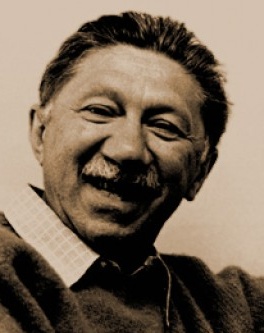Abraham Maslow: The Psychologist Who Placed the Soul Center Stage
55 years after his death, Abraham Maslow — the Jewish psychologist behind the iconic pyramid — still teaches us that human beings don’t just want to survive, but to grow, transcend, and find meaning.

Few psychologists have names that became common expressions even among those who never studied a single day of psychology. Abraham Maslow is one of those few. The man who dared to claim that man is not merely a walking complex or a neurotic creature full of anxieties, but a striving being, yearning for more — for growth, for meaning, for self-actualization. 55 years after Maslow's death, on June 8, 1970, is a fitting time to remember the figure of the man who returned the human being to center stage — not as an object of behavioral manipulation, but as a searching, ascending, sometimes even praying subject.
The Lonely Child from New York
Maslow was born in Brooklyn, New York, in 1908, the son of a Jewish family who had immigrated from Russia. His childhood was difficult: he described himself as a lonely and withdrawn child who sought refuge in books and big questions. His parents, simple Jews who placed no importance on humanistic education, pushed him toward practical studies — but Maslow’s heart followed emotional and intellectual curiosity. Later he would veer away from the cold behavioral-scientific track of his time, toward a new psychological vision: one that sees man not only as a reactive being, but as an aspiring one.
The Pyramid That Became an Icon
Maslow entered history thanks to his "Theory of Needs," or by its popular name: Maslow’s Pyramid. At its base stand physical needs (food, drink, sleep), above them security, then belonging and love, then self-esteem, and at the top — self-actualization. Revolutionary was his assertion that man does not settle for survival alone. Even if he is not hungry, he can still be empty. Even if he sleeps on a comfortable bed, his heart may ache from thirst for meaning. It is a description of man that recalls, not by chance, descriptions from the world of Jewish thought — man who was not created just to exist, but to grow.
The Judaism That Didn’t Say Its Name
Maslow was not religious, but the spiritual foundations of his thought are evident. He spoke of “peak experiences” — moments of elevation, of connection to something beyond the ego. He believed that the spiritual yearning is not a weakness, but a deep expression of humanity. Is it accidental that a Jew was the one who introduced the concept of “self-actualization” into psychological discourse? Perhaps not. In the tradition of Israel, concepts like self-refinement, tikkun olam, wholeness stand at the heart of spiritual engagement. Maslow, in his secular-scientific way, gave these ancient ideals a new name, a systematic description, and made them the property of the many.
Toward the Peak of the Mountain
Maslow died at the age of only 62, after a heart attack. But before his death he managed to add another level to the pyramid: above self-actualization, he spoke of what he called self-transcendence — rising beyond the self, toward serving others or toward a greater ideal. Perhaps this is the most important legacy he left behind. In an era where the "I" stands at the center, Maslow reminded us that there is also what lies beyond the "I" — and that precisely there, often, the deepest happiness lies.
55 years after his death, the psychological poetry of Abraham Maslow still echoes in our world, guiding people not only how to survive — but also how to live.
This column is part of our series, “The Jews,” exploring the lives of extraordinary Jewish figures who shaped the world. In previous installments, we uncovered the political fire of Barry Goldwater, the strategic brilliance of chess legend Wilhelm Steinitz, and the scientific legacy of Nobel laureate Jack Steinberger. Each one in his own field, asked what it means to be a Jew, and what it means to be human. Abraham Maslow took that question into the realm of the soul.